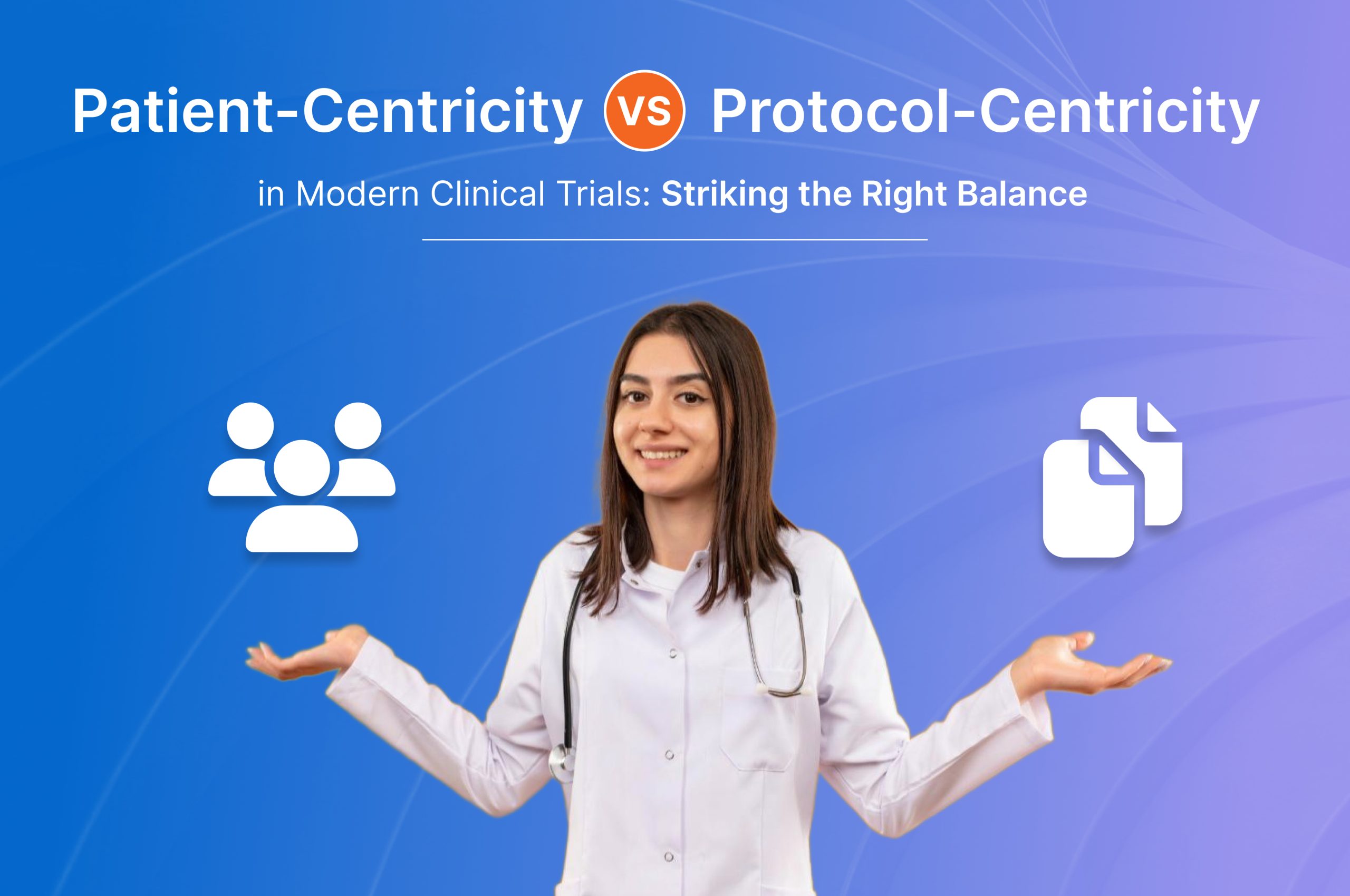Clinical trials are the basis of modern medicine, significantly contributing to the evaluation of new drugs, treatments, and medical devices for their safety and effectiveness. Yet, validating those results is far from simple; instead, such a process demands several controls that must be considered, foremost among which lies in the elimination of bias by blinding. Although blinding is a critical constituent of an objective clinical trial, it is pretty convoluted and quite challenging.
Octalsoft's IWRS/RTSM solves all such issues and can very easily directly overcome them to ensure the smooth execution of the blinding process. Read on as we discuss blinding in clinical trials.
Understanding Blinding in Clinical Trials
Masking, also called blinding, is the process of keeping some key stakeholders away from the nature of the treatment assigned to any participant i.e. the placebo or the IP. These stakeholders include the participants themselves, investigators, and even the data analysts. The following are some types of blinding:
- Single-blind trials: At this stage, the treatment the participant is receiving will not be known.
- Double-blind trials: Both the participant and the investigator will not know who was assigned what treatments.
- Triple-blinding: Neither the patients receiving treatment, nor the clinicians conducting the investigation, nor those analyzing the data, know the treatment assignments.
The purpose of blinding is to minimize the placebo effect and other biases that could interfere with the result of a clinical trial. If knowledge of the treatment assignment is avoided, researchers can avoid conscious or unconscious changes in behavior, in the administration of the treatment and/or in data interpretation.
Challenges to Implementing Blinding in Clinical Trials
Blinding, although necessary in removing bias, still presents challenges in its application, especially in sophisticated studies like multi-armed trials whose outputs are meant to be measured on diverse arms and locations around the country. Some of its major challenges include the following:
- Maintenance of confidentiality: In such a clinical trial, participants and investigators must not unwittingly become aware of their assignment to some treatment. Leaks or unconscious unblinding may cause biased results.
- Complex randomization procedures: Trials often have many treatment arms, and may involve placebo controls or dose-escalation cohorts. It can become very difficult to keep this process blind and randomize patients into these groups.
- Supply management and labeling: IP must be packed, labeled, and dispensed to keep the blinding in the process. It would become really challenging in international studies where local regulations may vary.
- Emergency unblinding: At times, it becomes necessary that the treatment allocation be unmasked in case of an adverse event or any medical emergency for purposes of safety. However, this would bring a necessary challenge to balance the scales to hold on to the integrity of the trial, while unblinding quickly is demanded.
- Data management and analysis: Collecting data and analyzing it should not break the blind; even during the analysis of the results, blinding must be maintained. This requires a coordinated system and personnel to avoid accidental unblinding.
Role of Technology in Blinding
Technology is fast emerging as an essential tool in modern clinical trials owing to the complexity involved in blinding. IWRS and RTSM systems have been designed to help simplify the entire process of randomization, trial supply management, and maintaining the integrity of blinding throughout the lifecycle of the trial. Octalsoft has designed an all-encompassing IWRS/RTSM solution that addresses the problems created by blinding while ensuring seamless execution of clinical trials.
How Octalsoft's IWRS/RTSM Supports Blinding in Clinical Trials
Octalsoft's IWRS/RTSM is designed to overcome all those blinding problems of traditional methods by automating and centralizing several crucial trial management activities. In this section, this technology has been ascertained by overcoming blinding in the following ways:
- Automated Randomization:
One of the primary purposes of an IWRS is to randomly distribute participants into various treatment groups. Octalsoft's system employs complex algorithms for randomization that ensure that participants are allocated into treatment groups in an unbiased manner. This computer-based randomization ensures neither the participants nor the investigators can pre-determine what treatment is being administered.
Octalsoft’s RTSM system provides the facility of stratification of randomization in terms of any base age, gender, or any characteristic so that the groups of the trial are not imbalanced substantially. Thereby, it enhances the scientific validity of the trial without disturbing the blinding process.
- Trial Supply Management (TSM):
If the investigational products are poorly controlled, it could compromise blinding. For instance, differences in packaging or labeling may reveal the treatment assignment. Octalsoft's IWRS/RTSM ensures that trial supplies are managed in a manner that keeps blinding intact.
The system follows the lifecycle of the investigational product, from manufacture through distribution, so the products come labeled and packaged to be blinded. The IWRS also includes the automatic re-supply of sites against predefined thresholds so that sites never run out of blinded material.
- Secure and controlled access
The multi-center trials require only the information necessary for different stakeholders, clinic sites, pharmacists, and sponsors. One gets role-based access in Octalsoft's IWRS/RTSM where one can open access to unblinded data only for authorized people with a chance of avoiding accidental unblinding.
- Emergency Unblinding
If emergency unblinding for the sake of patient safety entails instant knowledge of treatment allocation, Octalsoft's IWRS/RTSM enables safe emergency unblinding. This affords a quick access to treatment information within strict records of who accessed the data and why it was accessed. The system would only allow authorized personnel to do the process of emergency unblinding, thus circumventing unnecessary unblinding as well as accidental ones.
- Real-Time Monitoring and Reporting:
Octalsoft's IWRS/RTSM supports real-time tracking and reporting. This way, sponsors and investigators can track the conduct of the trial without upsetting their blinding. Reports on enrollment, randomization, drug allocation, and so many more are generated without the details of treatment allocation in order not to break their protocols set up for blinding.
- Data Integration and Analysis:
In order to enable blinded analysis, Octalsoft's IWRS/RTSM is integrated with EDC (Electronic Data Capture) systems among other trial management tools. Through such integration, data can be analyzed without any information passed down about the treatment allocations until the very end of the study.
The system further permits sponsors real-time access to blinded data analysis at recruitment rates, compliance, and safety endpoints without compromising the integrity of the trial.
Configurable Blinding Solutions:
Every clinical trial study is unique, and consequently, the need for blinding can vary with respect to the study design. Octalsoft's IWRS/RTSM is highly customizable - it allows the sponsor to configure the system according to his specific blinding needs. The platform may be tailored from a simple single-blind study to a complex multi-arm, double-blind trial so that the blinding could be effectively maintained.
Conclusion
The concept of blinding in clinical trial design cannot be ignored, as it is the quintessence of doing away with bias and providing credible results. However, its implementation is challenging in the case of a complex and multi-center trial. Thus, IWRS/RTSM by Octalsoft offers a complete solution to all challenges and answers issues such as fully automated randomization of the patients, secure management of supplies, emergency unblinding, and real-time monitoring without compromising the integrity of the blinding process.
Blinding could now be overcome by utilizing technology like Octalsoft's IWRS/RTSM, and thus sponsoring and conducting clinical trials more efficiently, accurately, and confidently. The system is scalable and caters to the wide range of complexity and size for any trial, and hence blinding management is properly taken care of right from the initiation stages till the conclusion. Want to know more about how Octalsoft’s eclinical suite can expedite the efficiency of your next clinical trial? Book a demo with us today!



